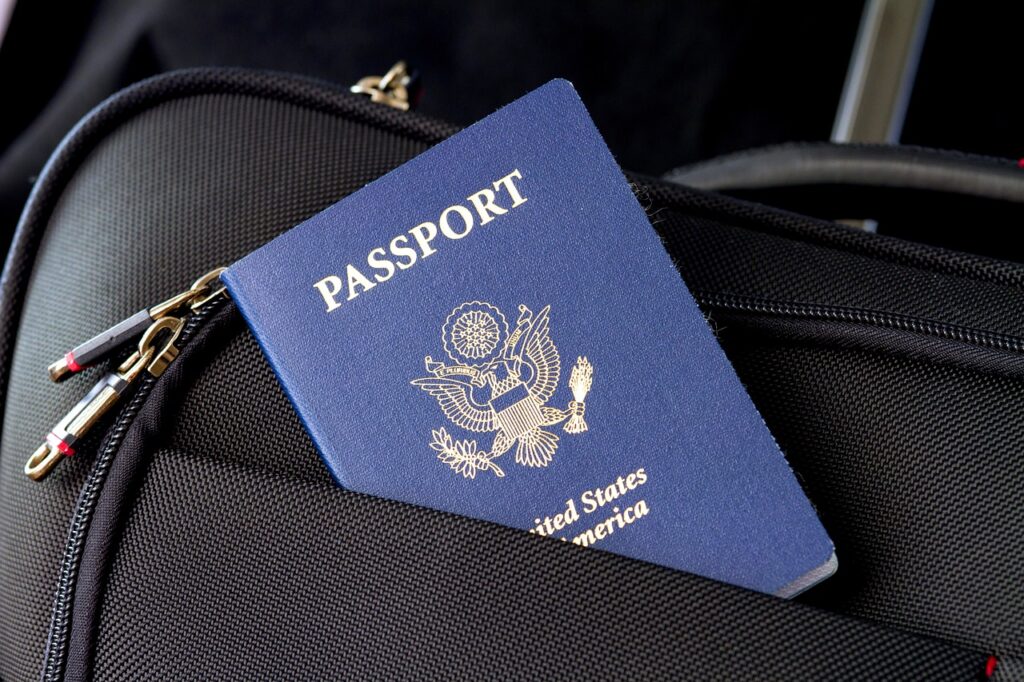Have you ever wondered how long you can stay in Canada without a visa? Well, the answer might surprise you! Whether you’re planning a short vacation or thinking of exploring the country for a longer period, it’s essential to know the regulations surrounding visa requirements. In this article, we will explore the duration of stay allowed for visitors to Canada without a visa and the conditions that apply. So, if you’re ready to learn more about your options for exploring the Great White North, let’s jump right in!
Temporary Visitors
Visiting Canada can be an exciting opportunity to explore the country’s vibrant cities, breathtaking landscapes, and diverse culture. Whether you’re coming for business, tourism, education, or to visit family and friends, it’s important to understand the visa requirements and the length of stay allowed for each category of temporary visitors.
Visa-exempt Countries
If you are a citizen of a visa-exempt country, you may be able to enter Canada without a visa. The government of Canada has established a list of countries whose citizens are exempt from the requirement of obtaining a visa before traveling to Canada. However, it is important to note that being visa-exempt does not automatically grant you the right to enter and stay in Canada for an unlimited period of time.
Electronic Travel Authorization (eTA)
For citizens of visa-exempt countries arriving in Canada by air, an Electronic Travel Authorization (eTA) is now mandatory. The eTA is a simple online process that grants you permission to travel to Canada by air. It is important to apply for the eTA before your trip, as you will not be able to board your flight without it. The eTA is valid for five years or until your passport expires, whichever comes first.
Visitor Record
The length of stay allowed for temporary visitors is an important consideration. Upon entering Canada, a border services officer will determine the allowed duration of your stay, which will be indicated on a document known as the Visitor Record. It is crucial to understand and comply with the terms specified in your Visitor Record, as exceeding the permitted length of stay can have serious consequences for future visits to Canada.
Business Visitors
Canada is a hub for international business, attracting business professionals from around the world. If you are visiting Canada for business purposes, it’s essential to understand the requirements and limitations related to your stay.
Length of Stay for Business Visitors
Business visitors are typically allowed to stay in Canada for a maximum period of six months. During this time, you can participate in business meetings, negotiate contracts, or explore potential investment opportunities. It is important to note that engaging in any form of employment or work in Canada requires a work permit, even if it is for a short duration.
Work Permits for Business Visitors
In some cases, business visitors may be eligible to obtain a work permit to engage in specific work activities while in Canada. This can include activities such as providing after-sales service, performing maintenance or repairs, or delivering training. It is crucial to verify if your intended work activities qualify for a work permit and to obtain the necessary documentation before commencing any work-related tasks.

This image is property of pixabay.com.
Tourists
Canada is renowned for its stunning landscapes, national parks, and cultural attractions, making it a popular destination for tourists from around the globe. If you’re planning a vacation in Canada, it’s important to understand the duration of your stay permitted as a tourist.
Length of Stay for Tourists
Tourists visiting Canada are generally allowed to stay for a maximum of six months. This time allows you to explore the country’s iconic landmarks, immerse yourself in its vibrant cities, and experience its rich cultural heritage. It is essential to ensure that your length of stay adheres to the guidelines specified by the border services officer upon your entry into Canada.
Students
Canada is internationally recognized for its prestigious educational institutions and high-quality education. If you are considering pursuing your studies in Canada, it’s crucial to understand the requirements and regulations regarding study permits.
Study Permits
To study in Canada as an international student, you will generally need to obtain a study permit. A study permit is a document that allows you to study at designated learning institutions (DLIs) in Canada. It is important to apply for your study permit before coming to Canada, as you will not be able to study without it.
Length of Stay for Students
As an international student, your study permit will specify the duration of your authorized stay in Canada. The length of stay can vary depending on the duration of your program of study. In some cases, study permits may be extended if you wish to continue your education or pursue further studies in Canada. It is crucial to comply with the terms and conditions specified on your study permit to avoid any issues during your stay.

This image is property of pixabay.com.
Temporary Foreign Workers
Canada’s thriving economy and numerous employment opportunities make it an attractive destination for individuals seeking temporary employment. If you are planning to work in Canada on a temporary basis, understanding the work permit requirements and the allowed duration of stay is essential.
Work Permits
In most cases, foreign nationals intending to work temporarily in Canada will be required to obtain a work permit. A work permit is a legal document that allows you to work for a specific employer and for a specific duration. It is important to carefully follow the application process and meet all the necessary requirements to obtain a valid work permit before starting employment in Canada.
Length of Stay for Temporary Foreign Workers
The length of stay permitted for temporary foreign workers in Canada is typically based on the employment contract or job offer. Work permits are usually issued for a specific period, allowing you to work in Canada for that duration. If you wish to continue working in Canada beyond the validity of your initial work permit, you may be required to apply for an extension or explore other pathways for long-term employment.
Family and Friends Visitors
Visiting family and friends is a special and cherished experience. If you have loved ones residing in Canada and plan to visit them, it’s important to understand the available options and length of stay permitted for such visits.
Super Visa
If you wish to visit your family or friends in Canada for an extended period, the Super Visa might be a suitable option for you. The Super Visa allows eligible parents and grandparents of Canadian citizens or permanent residents to visit for up to two years at a time, without the need for frequent visa renewals. This provides an excellent opportunity to spend quality time with your loved ones and create lasting memories.
Length of Stay for Family and Friends Visitors
For visitors under regular visitor visas, the length of stay allowed is typically determined by the border services officer upon entry into Canada. It is essential to adhere to the approved time duration and avoid overstaying, as it may have implications for future visits. If a longer stay is desired, exploring options such as the Super Visa or other pathways may be beneficial.

This image is property of pixabay.com.
Inadmissibility and Overstaying
It is crucial to understand the consequences of overstaying in Canada or engaging in activities that make you inadmissible to the country. Violating the terms and conditions of your temporary visitor status can have serious implications and may hinder your ability to enter Canada in the future.
Consequences of Overstaying
Overstaying your authorized duration in Canada can result in negative consequences, such as being issued removal orders, being banned from re-entering Canada for a certain period, or facing difficulties in obtaining visas or permits in the future. It is important to respect the immigration laws of Canada and ensure that you depart the country within the specified timeframe of your stay.
Remaining in Canada after Visa Expiry
Staying in Canada after your visa expires is considered an act of non-compliance. It is important to remember that even during the validity of your visa or authorized stay, engaging in certain activities, such as working without the necessary permit, may have severe consequences. If you wish to extend your stay or explore other options, it is essential to take appropriate steps to ensure compliance with Canadian immigration regulations.
Extending Stay
If you wish to prolong your stay in Canada beyond your authorized duration, it may be possible to apply for an extension. Understanding the process and requirements for extending your stay is crucial to ensure a smooth transition and compliance with Canadian immigration laws.
Applying for an Extension
To apply for an extension of your stay in Canada, you will need to submit a complete application to the appropriate Canadian immigration authorities. It is important to apply for an extension well before your current status expires to avoid any gaps in legal status. Meeting the eligibility criteria and submitting the required documentation are essential for a successful extension application.
Validity of Extension
If your application for an extension is approved, you will be granted an extended period of stay in Canada. It is important to note that the new period granted may still have limitations, and it is crucial to adhere to the conditions specified on your extended status. Failing to comply with the terms of your extended stay may result in future immigration issues.
Leaving and Re-Entering Canada
If you have obtained an extension to your stay in Canada or are planning to leave the country temporarily and return, it is important to be aware of the conditions and requirements for re-entry. Ensuring that your passport is valid and that you have the necessary documentation, such as a valid visa or permit, is essential before departing and planning your return to Canada.
Permanent Residency
For individuals seeking to make Canada their permanent home, there are various pathways to obtain permanent residency status. Understanding the process and requirements for applying for permanent residency is essential to fulfill your long-term immigration goals.
Applying for Permanent Residency
To apply for permanent residency in Canada, individuals can explore different programs and categories, such as the Express Entry system, Provincial Nominee Programs (PNPs), or Family Class sponsorship. Each program has its specific eligibility criteria and application process. It is crucial to thoroughly research and understand the program that best suits your qualifications and circumstances.
Express Entry
The Express Entry system is a popular pathway for skilled workers to obtain permanent residency in Canada. It is a point-based system that assesses candidates based on factors such as age, education, work experience, language proficiency, and adaptability. If you meet the eligibility criteria and are invited to apply, the Express Entry system can provide a streamlined approach to permanent residency.
Provincial Nominee Programs
Provincial Nominee Programs (PNPs) are designed to attract individuals with specific skills or work experience to specific provinces or territories in Canada. Each province or territory has its own set of requirements and program streams. If you have desired skills or work experience in demand by a specific province or territory, exploring the Provincial Nominee Programs can be a viable pathway to permanent residency.
Diverse Pathways
Individuals visiting Canada on temporary status may find themselves considering other immigration options to extend their stay or transition to permanent residency. Exploring diverse pathways can provide opportunities for those wishing to stay longer or make Canada their permanent home.
Visitor to Student
If you are in Canada as a visitor and wish to pursue your studies, transitioning from a visitor to a student can be a viable option. By obtaining a study permit and enrolling in a recognized educational institution, you can enhance your skills and qualifications while enjoying the Canadian experience. It is crucial to follow the proper application process and meet the requirements to ensure a smooth transition.
Visitor to Temporary Foreign Worker
In certain situations, individuals visiting Canada as tourists or for personal reasons may have the opportunity to transition to temporary foreign worker status. If you find a job offer in Canada and your prospective employer is willing to sponsor you, you may be eligible to apply for a work permit. It is important to ensure that your job offer meets the requirements for a work permit and that all necessary steps are taken to comply with Canadian immigration regulations.
Visitor to Permanent Resident
For individuals who have already spent time in Canada as visitors, transitioning from temporary status to permanent residency may be a long-term goal. By exploring the various pathways to permanent residency mentioned earlier, individuals can start their journey towards becoming a permanent resident of Canada. Patience, preparation, and understanding the application process are key factors in making this transition a success.
In conclusion, Canada offers a range of opportunities for temporary visitors, whether it’s for business, tourism, education, or to visit family and friends. Understanding the visa requirements, length of stay, and available pathways to extend your stay or obtain permanent residency is essential for a successful visit to Canada. By adhering to the immigration regulations, you can make the most of your time in this beautiful country and potentially achieve your long-term immigration goals.

